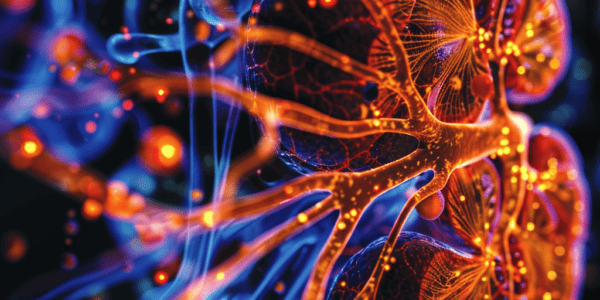Growing Mini Organs from Amniotic Fluid Cells Could Revolutionize Prenatal Medicine
The potential to grow miniature organs from cells found in amniotic fluid could revolutionize prenatal medicine, offering the possibility of treating health defects in fetuses before they are born. Researchers have successfully cultivated mini organs from tissue-specific stem cells extracted from amniotic fluid during active pregnancies, a groundbreaking development that could pave the way for monitoring and treating congenital conditions before birth.
Generative AI Improves Healthcare-Associated Infection Surveillance, Study Finds
Researchers have found that generative artificial intelligence (AI) could improve healthcare-associated infection (HAI) surveillance programs, addressing the significant challenge of HAIs in healthcare. The study assessed the accuracy of two large language models in identifying central line-associated bloodstream infection (CLABSI) and catheter-associated urinary tract infection (CAUTI) in clinical scenarios, showing promising results for AI in enhancing infection surveillance programs.
Are statins and blood pressure medication to blame for kidney disease?
Many people who take statins and blood pressure medication may wonder if these drugs could have caused their kidney problems. Statins and ARBs, while beneficial for heart health, can in rare cases lead to kidney damage. However, the benefits of these drugs typically outweigh the risks, and patients should continue taking their prescribed medications unless advised otherwise by a healthcare professional.
Surge in Deaths Linked to Pregabalin in the UK
Deaths linked to pregabalin, a commonly prescribed anxiety drug, have more than doubled in the UK from 2018 to 2022. Recent press reports have compared this surge to a US-style opioid epidemic, causing undue panic. Pregabalin, also known as Lyrica and Alzain, is used to treat epilepsy, nerve pain, and anxiety, but can be dangerous when taken alongside certain other drugs.
The Health Benefits of Onions: What You Need to Know
Learn about the health benefits of onions and how they can reduce the risk of cancer and heart disease. Discover the antioxidant and anti-inflammatory properties of quercetin found in onions and how to incorporate them into your diet for a healthier lifestyle.
New Treatment Options for Pediatric Sarcoma Patients
Learn about the latest treatment options for pediatric sarcoma patients from Cedars-Sinai’s Dr. Leo Mascarenhas, including the use of larotrectinib to shrink NTRK fusion sarcomas and improve patient outcomes. Discover the importance of expert care, multidisciplinary teams, and comprehensive support for patients and their families.
Scientists Conduct First-Ever Gene Therapy Tests in Whole Human Liver
Groundbreaking study by Children’s Medical Research Institute (CMRI) conducts first-ever gene therapy tests in whole human liver, aiming to develop more effective treatments for inherited diseases. Research addresses challenges in bringing gene therapies from lab to clinic, utilizing innovative normothermic liver perfusion system to test AAV-based therapeutics before clinical studies. Senior author expresses excitement about potential for directly assessing gene therapeutics in human liver.
New Drug Target Identified to Prevent Kidney Failure
New research from Weill Cornell Medicine has identified a potential drug target, retinoic acid receptors (RARa), in the proximal tubules of the kidney to prevent kidney failure. The study suggests that drugs activating RARa could counteract fibrosis caused by conditions like diabetes, autoimmune diseases, or viral infections, offering hope for new treatment strategies to combat kidney failure.
Researchers Make Strides in Understanding LAG-3 Protein
Researchers at Stanford University and New York University have made significant strides in understanding the properties of the LAG-3 protein, shedding light on its structure and function. This breakthrough could have far-reaching implications for the development of immune checkpoint inhibitor drug candidates targeting LAG-3. The study, published in Proceedings of the National Academy of Sciences, provides crucial insights into the molecular structure of LAG-3 and how it operates. LAG-3, like other checkpoint proteins, serves to prevent the immune system from attacking non-threatening entities. In the context of cancer, these proteins can shield tumor cells from immune recognition, hindering the body’s natural defense mechanisms. While existing antibody treatments focus on checkpoint proteins CTLA-4 and PD-1, the unique mode of action of LAG-3 presents an opportunity for novel approaches in cancer therapy. Scientists are optimistic about the potential of targeting LAG-3, driven by its distinct mechanisms compared to CTLA-4 and PD-1.
Genetic Variant Provides COVID-19 Protection for Men Under 75, Study Finds
A recent genetic analysis has revealed that a certain variant of an anti-inflammatory gene provides protection against severe illness and death from COVID-19 for men under the age of 75. The study focused on the interleukin-1 receptor antagonist (IL1RN) variant, specifically the rs419598 variant, and found that men between the ages of 19 and 74 who possessed the IL1RN variant were significantly less likely to experience severe illness after hospitalization for COVID-19, with an 80 percent lower likelihood of succumbing to the disease. The research sheds light on the genetic factors that influence the severity of COVID-19 and could potentially pave the way for targeted treatments and interventions for at-risk individuals.










